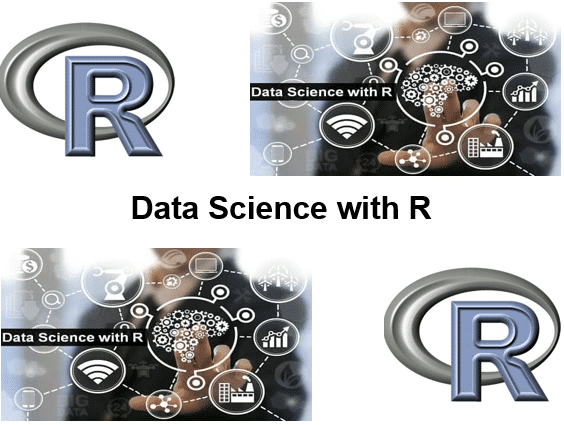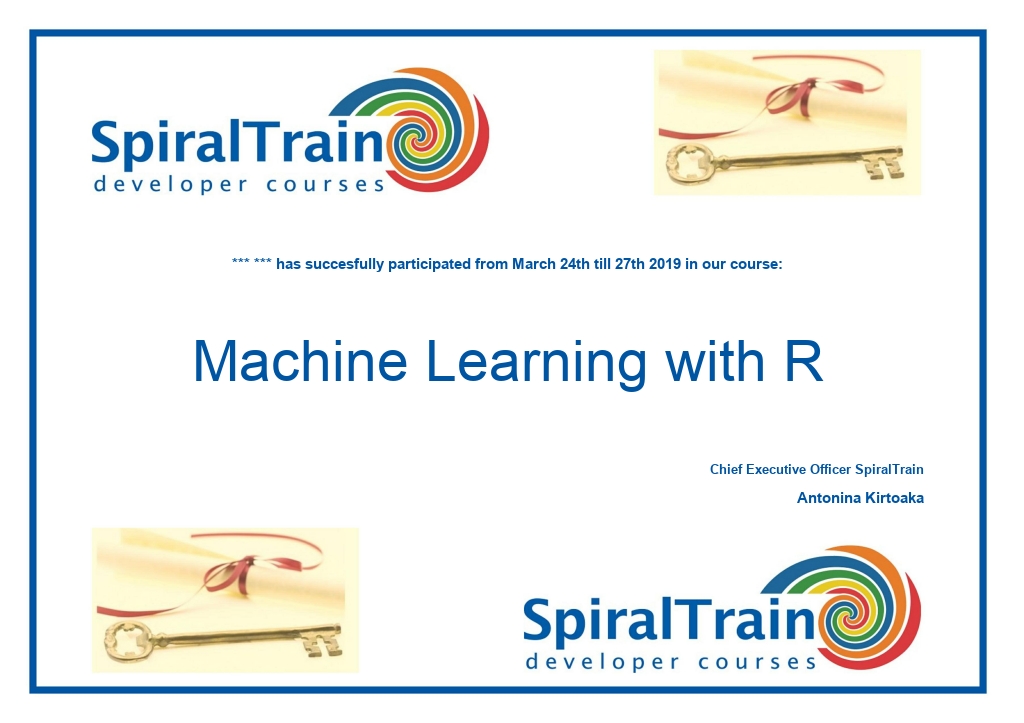-
Learning by doing
-
Trainers with practical experience
-
Classroom training
-
Detailed course material
-
Clear content description
-
Tailormade content possible
-
Training that proceeds
-
Small groups
In the course Machine Learning with R you will learn how to apply the R language and the R libraries in modeling projects and machine learning. Machine Learning is part of artificial intelligence and concerns the study of algorithms that automatically improve based on experience. Machine learning algorithms create a model based on training data and can then make predictions about new data.
First of all, a review discusses the fundamentals of R such as data types and functions. Then a number of important libraries such as dplyr and ggplot2 are treated.
Next the principles of machine learning, building models based on data and the differences between supervised and unsupervised learning are explained.
Linear regression and logistic regression and the differences between them are discussed. Then attention is paid to how models can be checked for accuracy by looking at summaries, coefficients and plots.
Subsequently the course covers how functional programming techniques in R can be applied. Here other solutions for iteration through various map and other functions are discussed.
Attention is also paid to the access of Apache Spark from R by means of a distributed data frame implementation with operations such as selection, filtering and aggregation.
Visualization of data in interactive web applications directly from R via the Shiny package is also on the program.
Next the course Machine Learning with R discusses Decision Trees. This Machine Learning algorithm is based on classification.
Finally the course ends with the discussion of various other Machine Learning algorithms such as Naive Bayes, Principal Component Analysis and Support Vector Machines.
The course Machine Learning with R is intended for data analists and data scientists who want to use the R libraries for modeling and machine learning.
To participate in this course knowledge and experience with the programming language R for Data Analysis is required. Prior knowledge with regard to statistical methods and algorithms is beneficial for the understanding.
The theory is treated on the basis of presentations. Illustrative demos clarify the concepts. The theory is interspersed with exercises and case studies. The course times are from 9.30 to 16.30.
Participants receive an official Machine Learning with R certificate after successful completion of the course.

Module 1 : R Review |
Module 2 : Machine Learning |
Module 3 : Linear Regression |
|
R Data Types Data Frames Factors Rmarkdown tidy package Functions in R Apply functions Statistics R Data Files Using dplyr Package Plotting with ggplot2 |
What is Machine Learning? Building Models of Data Model Based Learning Tunable Parameters Supervised Learning Discrete Labels Continuous Labels Classification and Regression Unsupervised Learning Data Speaks for Itself Clustering and Dimensionality Reduction |
Check Model Using Summary Using Coefficients Correlation R R Squared F Test Check Model Graphically Check Residuals Polynomial Regression Gaussian Basis Functions Overfitting |
Module 4 : Logistic Regression |
Module 5 : Functional R |
Module 6 : Sparklyr Intro |
|
Compare with Linear Regression Explore with Graphics Logistic Function Checking Model Using Summary Using Coefficients Calculate Probabilities Making Predictions Confusion Matrix Accuracy Precision and Recall ROC Curve |
Solving Iteration purr package library tidyverse map Functions Parameters of map .x as placeholder map_lgl Function map_int and map_char map2 Function Other iteration functions Combine purr with dyplr walk Function |
Spark Session Copy data into Spark File Setup Load data Spark SQL Store Data Using dplyr showquery() Spark DataFrame Functions sdf_pivot() Feature Transformers Distributed R |
Module 7 : Shiny |
Module 8 : Decision Trees |
Module 9 : Other Algorithms |
|
Web Applications Shiny Architecture Shiny Server UI and Server Input Object Output Object Reactivity Render Options Shiny Functions Shiny Layout and Dashboard Shiny Performance |
Ensemble Learner Creating Decision Trees DecisionTreeClassifier Overfitting Decision Trees Ensembles of Estimator Random Forests Parallel Estimators Bagging Classifier Random Forest Regression RandomForestRegressor Non Parametric Model |
Naive Bayes Classifiers Gaussian Naive Bayes Principal Component Analysis Least Squares Polynomial Fitting Constrained Linear Regression K-Means Clustering Support Vector Machines Conditional Random Fields Explained Variance Dimensionality Reduction |
